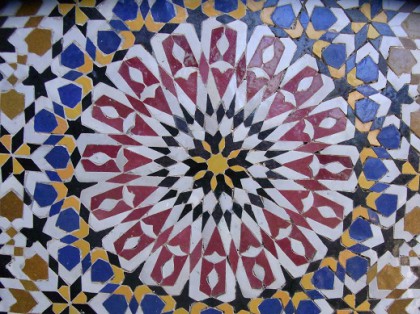
March 2012
 | March 2012 |
North Africa unites to influence its future | |
|---|---|
 IUCN has brought together the main voices concerned with nature conservation in North Africa at the IUCN North Africa Members Forum in Rabat, Morocco. IUCN members and partners reviewed achievements to date and devised a new programme of work. The approach is now more pragmatic, offers clear nature-based solutions to current environmental challenges and can become a reality even with limited financial resources. Here you will find the 2nd Draft IUCN North Africa Programme 2013-2016 for consultation. Please send your comments to maher.mahjoub@iucn.org by 15 April 2012. "This new priority-setting programme for North Africa feeds on past experience but also looks to a more concerted approach in the future," says Antonio Troya, Director of IUCN Centre for Mediterranean Cooperation. "We want to offer our members and partners more training and better communication resources to effectively put in place concrete actions and solutions based on nature." IUCN is involved in North Africa through the Centre for Mediterranean Cooperation located in the city of Malaga in Spain. The countries involved are Egypt, Libya, Tunisia, Algeria and Morocco. Currently, IUCN has 17 Members in North Africa. The long term goal of IUCN in North Africa is to preserve biodiversity components and restore degraded ecosystems. The development of knowledge and skills to achieve this goal is one of the constants of IUCN. According to IUCN Global Programme guidelines, the objectives for the period 2013‐2016 will be broken down as follows: * Valuing and conserving biodiversity in North Africa; * Sharing the benefits of nature in North Africa fairly and equitably; * Developing nature‐based solutions to climate change in North Africa; * Managing North Africa ecosystems to improve food security; * Greening the North African economy. According to the IUCN mission, achieving these objectives will be through influencing national and regional policies related to natural resources conservation and ecosystem management, while mobilizing the three IUCN pillars (Members, Commissions and Secretariat) to achieve these purposes as part of the IUCN "One Programme" approach. In general, the intervention methodology of IUCN in North Africa includes the following: * Promoting and encouraging adhesion of new IUCN Members to strengthen IUCN representation. * Supporting and strengthening the capacity of IUCN Members in North Africa and the creation and functioning of national committees in each country, so they can fully play their role in influencing national and regional policies in relation with nature conservation. * Communicating and providing technical and scientific information for Members and partners and its adaptation to region and country level specificities. * Assisting in setting proper conservation actions through pilot projects including new approaches and conservation models for further strategies to be developed and implemented. IUCN members in the region are: ALGERIA (3) ‐ Association Ecologique Boumerdes EGYPT (3) ‐ Academy of Scientific Research and Technology MOROCCO(5) ‐ Association Gestion Integrée des Ressources (AGIR) - Association Marocaine pour l`Ecotourisme et la Protection de la Nature ‐ Association Ribat Al Fath ‐ Société Protectrice des Animaux et de la Nature TUNISIA (6) ‐ Association "Les Amis des Oiseaux" ‐ Association tunisienne pour la protection de la nature et de l`environnement ‐ Fédération Nationale des Associations des Chasseurs et des Associations de Chasse Spécialisées ‐ Ministère de l`Agriculture et de l´Environnement ‐ Union nationale de la femme tunisienne More info: maher.mahjoub@iucn.org | |